South Africa
A tea towel on his lap against sunburn, a thermos of coffee and hard-boiled eggs: Frans Hugo, a 90-year-old editor, starts his weekly 1,200 km journey across the South African Karoo desert to deliver his newspapers.
The energetic old man is used to it. In this way, he is able to make the most of his time in the country and to make the most of his time in the world," he says. "He has been doing this for forty years, and every Thursday he climbs into his trusty sedan for this long journey from Calvinia, a town of fewer than 3,000 people in the middle of this huge wilderness in the south of the country.
If he stopped, his Afrikaans-language newspapers - The Messenger, Die Noordwester and Die Oewernuus - would probably disappear with him.
His little transistor set in the steering wheel, the car radio long since surrendered, he begins his loop to the northeast, then south... "I stop in all the small towns", he confided to the AFP during a recent tour.
Departure 1h30 for a return 18 hours later. The time to deposit his batteries, with the help of his cane, in a multitude of localities. Some of them have seen a recent influx of new inhabitants, artists, loners or originals fleeing the hustle and bustle of the big cities.
Like Frans, many here express themselves straightforwardly, with simplicity. Living in such a remote area requires autonomy and resourcefulness. A bit of eccentricity can't hurt.
In the Karoo, we speak of a "pumpdonkie", a water pump with regular movement that empties the tanks. "I have become a pompdonkie myself. I leave every week with the regularity of a metronome. I will stop when I am no longer physically able to do so," he predicts.
Born in Cape Town in 1932, he worked as a journalist there for about 20 years, then in neighbouring Namibia for 10 years. "We worked day and night. I couldn't stand the pressure so I moved to the Karoo," he says.
- Surviving the decline -
"I was catching my breath when the owner of the print shop in Calvinia came to me and asked if I was interested. My daughter was, so I thought that with my son-in-law, they could run the business and I would help them. After a few months, they got tired of it and I ended up with it," he says with an amused wink.
The Messenger was founded in 1975, and the other two local newspapers were in the early 1900s. Frans, his wife and three employees continue this legacy at a time when so many print newspapers around the world are struggling to survive in the digital age.
These eight-page weeklies in Afrikaans, one of South Africa's eleven official languages, inherited from the Dutch settlers, occasionally carry an English paper or ad.
Frans, with a white mane and the look of an old sea dog, is annoyed by those who consume their news online. "We're printing fewer newspapers. But at 1,300 copies a week, the need for local news remains, he says.
His newsroom looks like a museum with its old Heidelberg printing press and its guillotines (paper-cutting machines called guillotines here), although they have been abandoned in favour of computers for the past 30 years.
He says he is not worried about the future of his small press group. "I have no idea what will happen to it in five or ten years. But no, I'm not worried about that."
Actress Charlize Theron caused a scandal in South Africa in November when she claimed that her native language, Afrikaans, was only spoken by "roughly 44 people".
The survival of his beloved newspapers shows, on the contrary, that the isolated inhabitants of this semi-desert Karoo need to maintain a connection. And as long as he has the strength, they will receive news every Thursday, without fail.



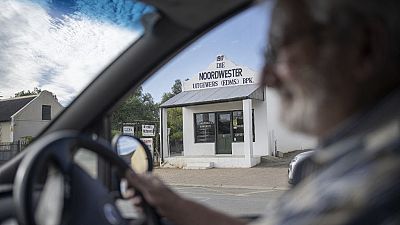

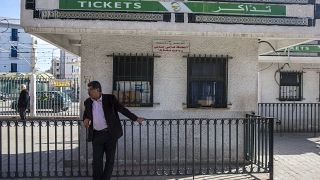

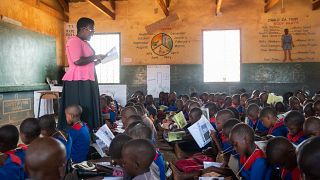
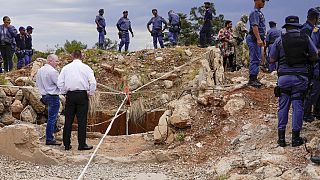
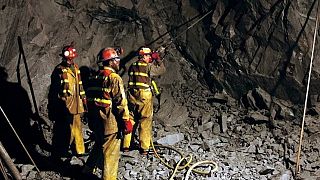
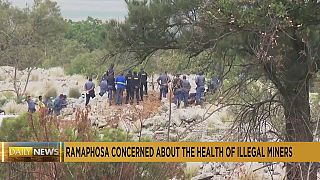



01:40
Kenya cancels airport and energy deals with Adani group after the U.S. indicts the tycoon
Go to video
Fugitive Zambian MP Emmanuel Jay Banda arrested in Zimbabwe after three-month Manhunt
Go to video
Spain to offer residency and work permits to undocumented migrants
Go to video
Archbishop of Canterbury will end official duties in early January amid sex abuse scandal
Go to video
Congo opposition leaders call for protests against president's plan to change constitution
Go to video
At least 7 members of Nigerian security force missing after insurgents ambush convoy